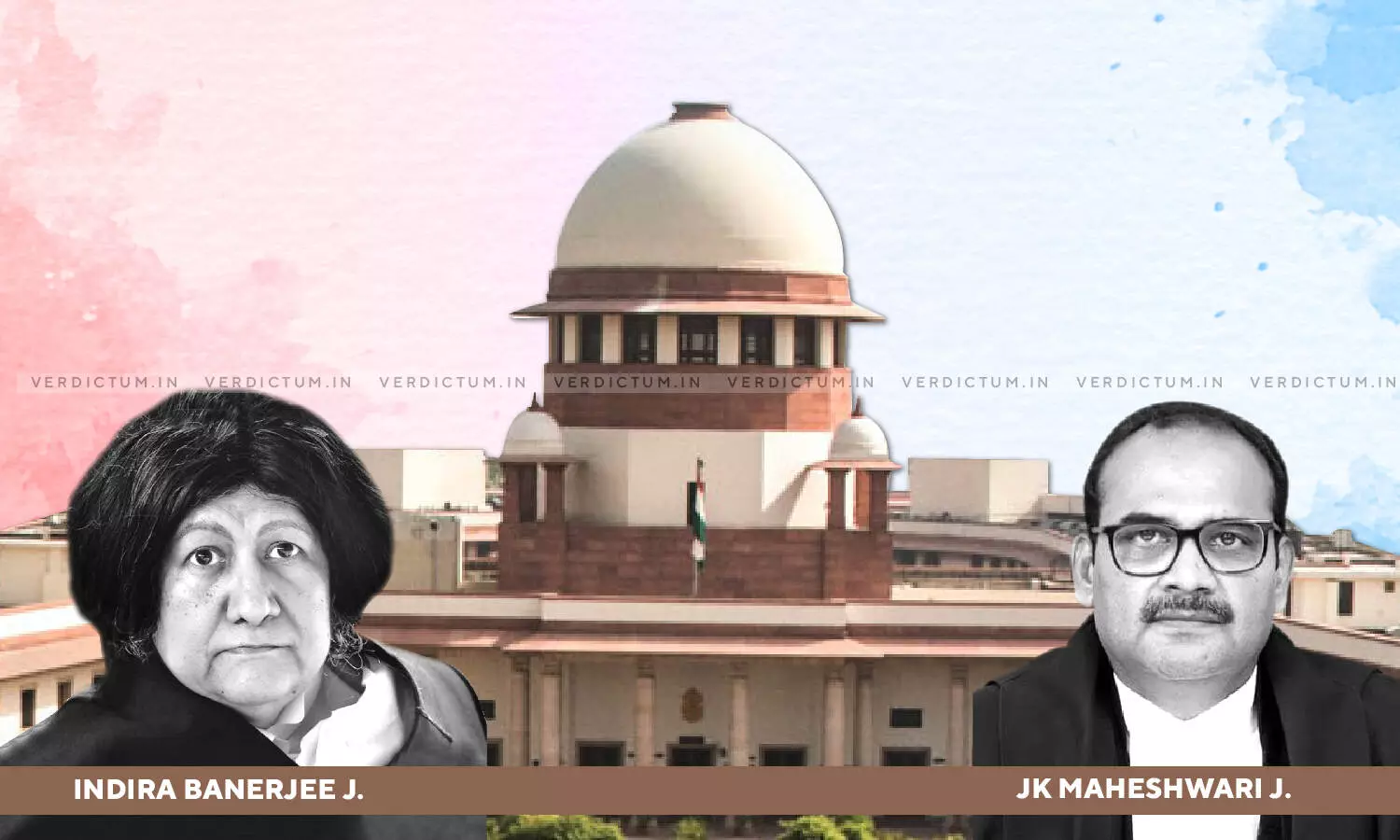
IBC: Approving Resolution Plan For Corporate Debtor Does Not Discharge Its Guarantor- Supreme Court
 |
|The Supreme Court has observed that approving a resolution plan in relation to a Corporate Debtor does not discharge its guarantor under Section 7 of the Insolvency and Bankruptcy Code.
A Bench of Justice Indira Banerjee and Justice JK Maheshwari observed –
"In Lalit Kumar Jain v. Union of India, this Court held that the approval of a resolution plan in relation to a Corporate Debtor does not discharge the guarantor of the Corporate Debtor. On a parity of reasoning, the approval of a resolution in respect of one borrower cannot certainly discharge a co-borrower."
The Court also held that if there are two borrowers or if two corporate bodies fall within the ambit of corporate debtors, there is no reason why proceedings under Section 7 of IBC cannot be initiated against both the Corporate Debtors.
In this case, Respondent No. 1 being a Non-banking financial company, had disbursed a loan amounting to Rs. 6 Crores to M/s. Premier Limited (Premier) under three separate Loan-cum-Pledge agreements on three different dates. As per the Appellant, Doshi Holdings pledged shares held by it in Premier, in favor of the Financial Creditor, by way of security for the loan.
According to the Appellant, the Loan-cum-Pledge Agreements contemplated two distinct transactions under one document, that is, grant of loan to Premier, and creation of pledge by Doshi Holdings of securities held by the Doshi Holdings in Premier.
Thereafter, Premier failed to make repayments in terms of the Loan-cum-Pledge Agreements. The Financial Creditor, therefore, called upon Premier to repay its outstanding dues and also Doshi Holdings described as borrower under the Loan-cum-Pledge Agreements, to pay the entire outstanding loan amount. However, Premier stated that it could not pay the same on account of genuine difficulty.
The Financial Creditor filed two different Petitions under Section 7 IBC against Premier and Doshi Holdings for initiation of CIRP in respect of the same claim of Rs. 8,35,25,398/-, based on the same loan documents.
Both the Petitions were heard together and NCLT admitted the Petitions for initiation of CIRP against both the Corporate Debtors for the same set of loans arising out of the same loan documents.
The Appellant filed an appeal before NCLAT under Section 61 IBC however, NCLAT dismissed the appeal and upheld the order of admission of the petition under Section 7 of the IBC.
Aggrieved, the Appellant approached the Supreme Court.
Senior Counsel KV Vishwanathan appeared for the Appellant – Doshi Holdings while Counsel Prateek Sakseria appeared for the Respondent before the Apex Court.
The Supreme Court noted that the Appellate Authority arrived at the factual finding that Doshi Holdings was also a borrower under the Loan-cum-Pledge Agreement. Thus, the factual finding, of the Appellate Authority which was the final fact-finding authority ought not to have interfered in this appeal.
"The finding of the Appellate Authority that Doshi Holdings is a borrower, is based on its interpretation of the Loan-cum-Pledge Agreements and supporting documents. The interpretation given by the Appellate Authority is definitely a possible interpretation. In our view, the interpretation is a plausible interpretation which cannot be interfered with in an appeal under Section 62 of the IBC," the Court held.
Further, the Court also held, "If there are two borrowers or if two corporate bodies fall within the ambit of corporate debtors, there is no reason why proceedings under Section 7 of the IBC cannot be initiated against both the Corporate Debtors. Needless to mention, the same amount cannot be realised from both the Corporate Debtors. If the dues are realised in part from one Corporate Debtor, the balance may be realised from the other Corporate Debtor being the co-borrower. However, once the claim of the Financial Creditor is discharged, there can be no question of recovery of the claim twice over."
Accordingly, the Court dismissed the appeal and upheld the order of NCLAT.
Cause Title - Maitreya Doshi v. Anand Rathi Global Finance Ltd. & Anr.
Click here to read/download the Judgment